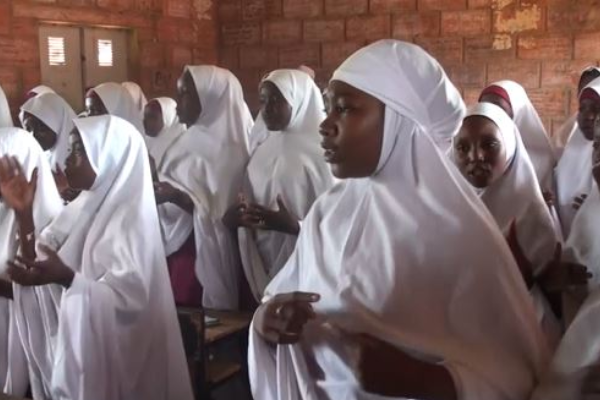According to data published by the UNESCO Institute of Statistics over two hundred and fifty eight million children, adolescents and youths across the globe are out of school.
This is around one sixth (1/6) of the global population of school age children between ages 6 and 17 years old)
The Data suggests that, unless urgent measures are taken, twelve million primary school age children will never attend school.
This will make it difficult to ensure inclusive quality education for all to be achieved, one of the sustainable development Goals set by the international community for 2030
Closer to home, a United Nations Children’s Fund, UNICEF, data reveals that one in every five of the world’s out of school children is in Nigeria.
The data also shows that about ten point five million children in Nigeria between the ages of five and fourteen are not in School.
The situation is worse in northern Nigeria , where the north east and the North west geopolitical regions have the most worrying statistics of out of school children due to the insecurity experienced in the geopolitical regions.
Over fifty percent of girls in the region are not in school due to certain factors, that go beyond security which include economic barriers, socio-cultural norms and practices that discourage attendance in formal education especially for the girl child
Sokoto state is in the North West geopolitical region with a huge number of out of school children.
Available data shows that over one point four million children (1.4 billion) are not attending school in the state, this notwithstanding, the efforts of the state government with the support of development partners.
[wonderplugin_video iframe=”https://youtu.be/IBge7cEMW5c” lightbox=0 lightboxsize=1 lightboxwidth=960 lightboxheight=540 autoopen=0 autoopendelay=0 autoclose=0 lightboxtitle=”” lightboxgroup=”” lightboxshownavigation=0 showimage=”” lightboxoptions=”” videowidth=600 videoheight=400 keepaspectratio=1 autoplay=0 loop=0 videocss=”position:relative;display:block;background-color:#000;overflow:hidden;max-width:100%;margin:0 auto;” playbutton=”https://www.tvcnews.tv/wp-content/plugins/wonderplugin-video-embed/engine/playvideo-64-64-0.png”]
This, has also necessitated a number of efforts including collaboration and participation in a number of programmes aimed at encouraging school enrollment in the state
One of such programmes is the Girl’s Education Project (GEP) which was initiated in 2012 and funded by the foreign Commonwealth and development office of the United Kingdom
The Programme is implemented in six states of northern Nigeria by UNICEF in partnership with the various state governments of Sokoto, Zamfara, Bauchi, Kano, Niger and Katsina
In the last ten years of the programme in Sokoto over four hundred and eighteen thousand, six hundred and fourteen children have been returned to school through the various incentives initiated and supported by the Girl Education Project.
The incentives that made this achievement possible include the Girls for Girls initiative, training for teachers with more attention on female teachers, the School Base Management Committee, the Mothers Association, school feeding, and cash transfer initiative
All these incentives resulted in a massive school enrolment drive in Sokoto as grants were provided by UNICEF to support all these activities to encourage performance
Sustaining these programmes that have helped in returning children back to school is a major concern as the Girl’s Education Project will come to an end in September 2022,
The Girl’s education project (GEP) has improved the enrolment of girls in school in Sokoto with more girls now in schools pursuing their dreams of having a better life in the future through their various careers of choice .
State officials says adequate provisions have been made to sustain efforts that have been put in place
But the reality on ground suggests otherwise with inadequate female teachers in schools, rising security threats, glaring poverty and high living standards in the country
These factors may discourage parents from sending their children to school especially in rural communities in Sokoto state where most of these challenges still persist.





